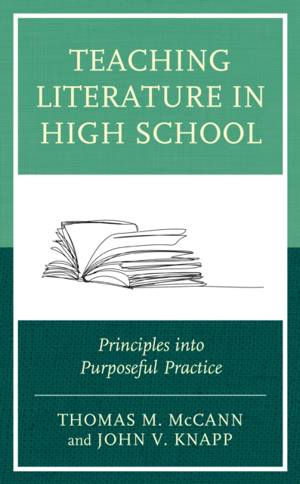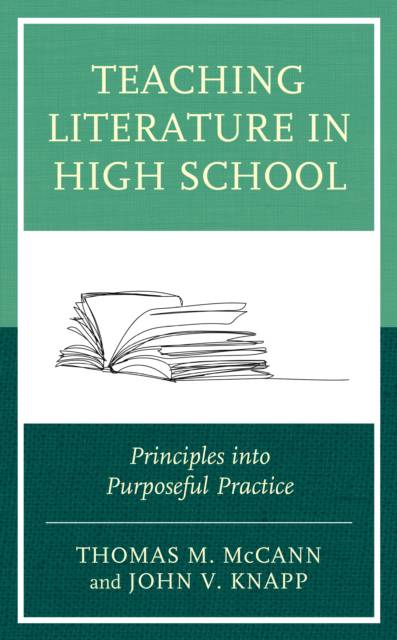
- Afhalen na 1 uur in een winkel met voorraad
- Gratis thuislevering in België vanaf € 30
- Ruim aanbod met 7 miljoen producten
- Afhalen na 1 uur in een winkel met voorraad
- Gratis thuislevering in België vanaf € 30
- Ruim aanbod met 7 miljoen producten
Zoeken
Teaching Literature in High School
Principles Into Purposeful Practice
Thomas M McCann, John V Knapp
Paperback | Engels
€ 64,45
+ 128 punten
Uitvoering
Omschrijving
In looking for an approach to teaching literature in high school, teachers largely fall back on the methods that they had experienced as students. These practices often involve a teacher assigning a complex work of literature and then assessing students' reading through in-class recitations or quizzes. Teachers typically dominate the discourse and sometimes take charge of the task by reading aloud whole swathes of texts to their students. We know from our own experience as teachers, supervisors of teachers and student teachers, and researchers in the field that students are often bored with these approaches and teachers are frequently frustrated with learners' unenthusiastic responses to the teachers' favorite works of literature. There has to be a better way. This book offers approaches to engage students in productive procedures for reading complex texts and provides sample activities to allow learners to practice those procedures.
Specificaties
Betrokkenen
- Auteur(s):
- Uitgeverij:
Inhoud
- Aantal bladzijden:
- 170
- Taal:
- Engels
Eigenschappen
- Productcode (EAN):
- 9781475860252
- Verschijningsdatum:
- 15/12/2021
- Uitvoering:
- Paperback
- Formaat:
- Trade paperback (VS)
- Afmetingen:
- 152 mm x 229 mm
- Gewicht:
- 258 g

Alleen bij Standaard Boekhandel
+ 128 punten op je klantenkaart van Standaard Boekhandel
Beoordelingen
We publiceren alleen reviews die voldoen aan de voorwaarden voor reviews. Bekijk onze voorwaarden voor reviews.







